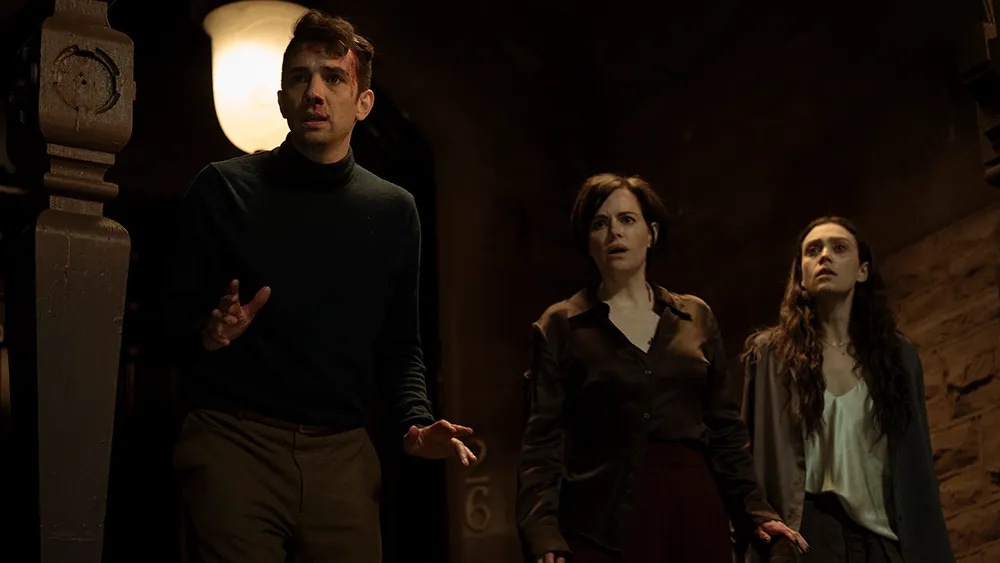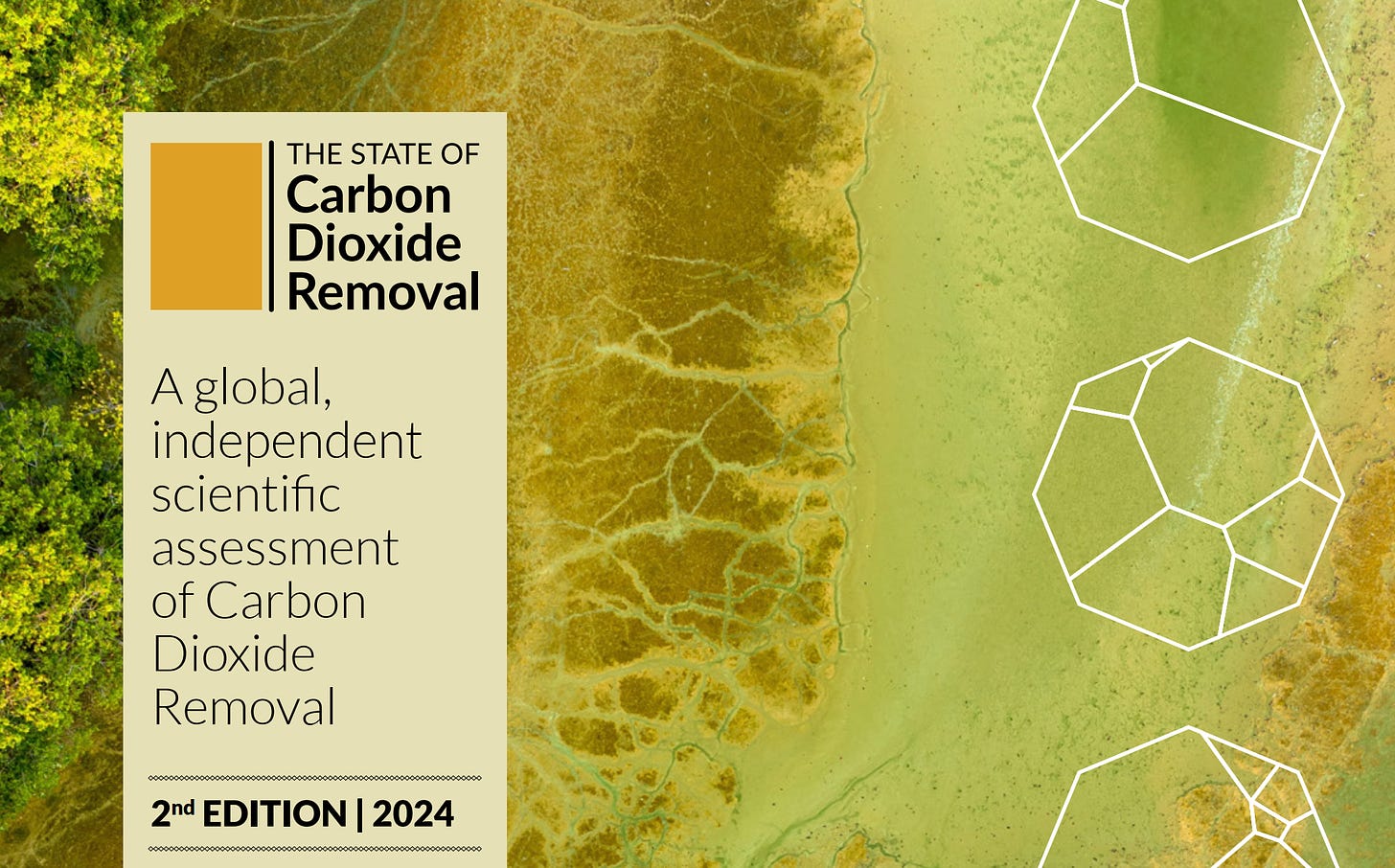'Overpopulation' Is A Racist Trope. It's Time We Laid It To Rest
A new movie satirises the myth that climate change is a consequence of too many people. In the real world, our overpopulation obsession must be euthanised.
This is Edition #10 of The Climate Laundry. Please consider becoming a paid subscriber if you find my work valuable and you have the means.
“The United States is more concerned than any other country with spreading and imposing family planning in the farthest outposts. Not only the government, but the Rockefeller and the Ford foundations as well, have nightmares about millions of children advancing like locusts over the horizon from the third world. In our day this global offensive plays a well-defined role. Its aim is to justify the very unequal income distribution between countries and social classes, to convince the poor that poverty is the result of the children they don't avoid having, and to dam the rebellious advance of the masses”—Eduardo Galeano, Open Veins of Latin America,1971.
Who among us has not, at one time or another, been a misanthrope? In my days as a brooding, melancholic teenager, like all other brooding, melancholic teenagers, I detested humanity in general and other teenagers in particular. There were, I thought, just too damn many people on this Hell of an Earth. And I was as alarmed as the next kid by Bad Religion’s song Ten in 2010, a 1996 punk number that warned about exploding population growth (the titular Ten stands, of course, for 10 billion people).
I was to grow out of my misanthropy, if not punk. But the belief that the Earth needs to shed a large proportion of its human residents persists within our culture, among both online weirdos and people who ought to know better.
The too many people trope is indulged in gluttonously in a new movie, Humane, directed by Caitlin Cronenberg, daughter of David. Humane’s premise is that all of Earth is undergoing an ecological catastrophe brought on by climate change, so 20% of the human population must be killed.
This dark comedy plays on our climate reality for its grim laughs. In the film, the entire international community has signed up to something called the “Athens Accords”, a mockery of the Paris Agreement, whereby all the nations of the world have pledged to exterminate 20% of their population via voluntary “enlistments”. But it’s not going so well. “We are severely behind our 20% pledge,” a professor tells an interviewer on the movie’s facsimile of CNN. “Not enough people are willing to enlist!”
In interviews, Caitlin Cronenberg has shown herself to be very sincerely concerned about about the threat of climate change. And yet, in its satirical meta-commentary, Humane appears almost to endorse the pronouncements of fossil fuel industry propagandists like Steve Milloy and Alex Epstein, who make a living claiming that cutting carbon emissions is a genocidal endeavour. The logic goes that, because fossil fuels helped enable the rapid expansion of populations from the Industrial Revolution onward, cutting their use must necessitate killing people. This ludicrous piece of concern-trolling is nonetheless seductive in its dumb-guy logic: doing x caused y, therefore stopping x must destroy y. And the thesis is leant no small amount of credence thanks to the many high profile “environmentalist” figures who have, indeed, taken up stances that could, fairly or not, be characterised as anti-human.
Take, for instance, the almost universally loved figure of David Attenborough.
A national treasure in Britain, Sir David has been aggressive in asserting the role of population growth as a “fundamental source of all our problems”, and continues to be a patron of Population Matters, a bizarre UK charity whose ultimate goal is, in a nutshell, fewer people. In frighteningly antiquated language, the quasi-saintly figure of Jane Goodall has claimed that “overpopulation” is a “taboo subject”, thanks to “political correctness” (I say this being, as you’ll see in this video, a huge Goodall fanboy). British Royals, who you’d have thought by now would have figured out when to keep their traps shut, have seen fit to complain publicly about the “rapidly growing human population” in Africa. Similar sentiments are shared in films like the execrable Planet of the Humans, and by aggressive Malthusians in online spaces. These pronouncements are cringe-inducing and misguided in equal measure, and furthermore serve the fossil fuel lobby’s bad actors who can claim that committed environmentalists are simply anti-human.
Overpopulationism is also lazy: it falls apart as soon as you interrogate the evidence and learn that global population growth is slowing, and is currently expected to top out in the 2080s, at around 10.4 billion people.1 Even if “overpopulation” was a cause of anything, it is a problem that is, inexorably, diminishing. But—and here’s the important bit—unsustainable population growth, when it occurs, isn’t a cause, it’s a symptom. And specifically, it’s a symptom of inequality. Groups like Population Matters kind-of, sort-of acknowledge this, but put the cart weirdly ahead of the horse when they position “empowering women and girls” as #1 in their order of priorities. The reason that’s weird is because, according to basically all of the available evidence we have on women’s empowerment and bodily autonomy, poverty reduction, or “improving socio-economic status”, is cited as the through-line. Of course women and girls must be empowered. But poverty eradication is the principal lever for that emancipation. Indeed, this is a key driver of why birth rates in the wealthiest nations have fallen so precipitously.2
Framing population as a cause of our ills, rather than a symptom, is an attempt to conceal this straightforward fact. As Eduardo Galeano points out so eloquently (see quote at the top of this page), by telling the poor that their poverty is the result of the children they don't avoid having, the wealthy West deflects attention from its brutal, systematic impoverishment of the Global South. All our lives, we’ve been fed tropes about undesirable, unwashed hordes spreading across the globe, destroying habitats and devouring charismatic megafauna. Like all other manifestations of racism, it’s so much easier to look elsewhere, wave one’s pale hand and say “it’s their fault”. But the truth is that planetary-scale inequalities, including climate change, are a direct consequence of colonialism.
As anyone reading this should by now be aware, the cause of rapid global heating is not “them”—it’s us Westerners.3 Research shows that the richest 1% of people generate more greenhouse gas emissions than the poorest 66%.4 The World Bank has found that the world’s 74 poorest countries produce just one tenth of the world’s CO2.5 On average, people in rich countries emit 30 times as much as their counterparts in the developing world.6 It is we who are the authors of the polycrisis. Everyone else just lives here.
In the 21st century, as if to place a cherry on the cake of historical perversity, wealthy nations are once again plundering the very poorest for the raw materials needed to decarbonise their economies. With apparently no trace of irony, the International Monetary Fund claims that their mineral resources mean the Democratic Republic of the Congo, Guinea, Mali, Mozambique and Zimbabwe are “poised to benefit” from a “clean energy transition-induced mining boom”.7 As countless ghosts across the central African nations can attest, those resources have only ever been a curse. It is the EV and iPhone users of New York and London who benefit; it is Congolese children who are consigned to hell.
This is the reality that comfortable, liberal Westerners need to internalise, and act upon. Our high-consumption lifestyles come with a bill that we’ve not paid, but that is coming due. And the first people to absorb that cost will be those who never even had a seat at the table. Our task is to figure out how we redress this historical, and ongoing, injustice.
We can begin by acknowledging the above, and calling out overopulationism for what it is: a racist canard. On encountering an Overpopulation Bro in the wild, you might try slapping them with what George Lakoff calls a truth sandwich: on the one hand, let them know that it is poverty, not population, that they should be concerned about. On the other, remind them that it is the wealthy, not the poor, who are responsible for our climate emergency. Then ask: if population bothers you so much, what do you propose to do about it? You could also do worse than share the Association for the Study of Literature and Environment Leadership’s excellent graphic novel, Against the Ecofascist Creep.
The zombie overpopulation myth will doubtless shamble on aimlessly a few years more—it’s been spread by too many worthies for it to simply go away. Nevertheless, it should be challenged wherever it rears its ugly head.
Sophocles claimed you can’t kill an idea. I say we should have a damn good go at it.
Elsewhere in climate news …
I covered a study by NASA researchers who suggested a 2020 reduction in shipping emissions resembled a huge, inadvertent geoengineering project. The study, published in Nature’s Communications Earth & Environment offshoot, has kicked up no end of controversy in the climate science community—in particular with its projection that a reduction in sulphur dioxide emissions could produce additional warming of 0.16 degrees Celsius over a seven-year period. Numerous researchers have gone on the record to cite shortcomings in the paper’s methodology, though pretty much everyone agrees that shipping emissions do appear to impact global heating, and that a lot more work on this is needed. (Forbes)
Shortly after Edinburgh banned SUV, airline and fossil fuel adverts, as I reported last week, the UN Secretary General called for a global ban on such marketing. Bizarrely, however, both BBC News and The Guardian failed to make the connection. The excellent Cecilia Keating at BusinessGreen put two and two together, and spoke to James Ward from Adfree Cities. "Fossil fuel advertising is everywhere, and we are all being duped by it," he said. "Misleading claims … are making us think that we can continue polluting and consuming as if the climate crisis wasn't bearing down on us.” (BusinessGreen)
Climate nerds rejoice! Oxford’s sequel to its original State of Carbon Dioxide Removal report has just been released, and it’s more detailed than ever. It brings mixed tidings for CDR, with growing but sluggish interest from governments, and R&D lagging in key areas. This update adds some significant new segments, including an explicit filtering of IPCC scenarios according to whether they meet other sustainable development goals such as eradication of hunger, access to energy, use of water and more. I’ll be writing about the report for Forbes, so watch this space. (stateofcdr.org)
https://www.scientificamerican.com/article/global-population-growth-is-slowing-down-heres-one-reason-why/
https://theconversation.com/women-in-rich-countries-are-having-fewer-kids-or-none-at-all-whats-going-on-229185
https://www.carbonbrief.org/revealed-how-colonial-rule-radically-shifts-historical-responsibility-for-climate-change/
https://www.theguardian.com/environment/2023/nov/20/richest-1-account-for-more-carbon-emissions-than-poorest-66-report-says
https://blogs.worldbank.org/en/climatechange/when-poverty-meets-climate-change-critical-challenge-demands-cross-cutting-solutions
https://ourworldindata.org/inequality-co2#
https://www.imf.org/-/media/Files/Publications/REO/AFR/2024/April/English/MineralsNote.ashx#









